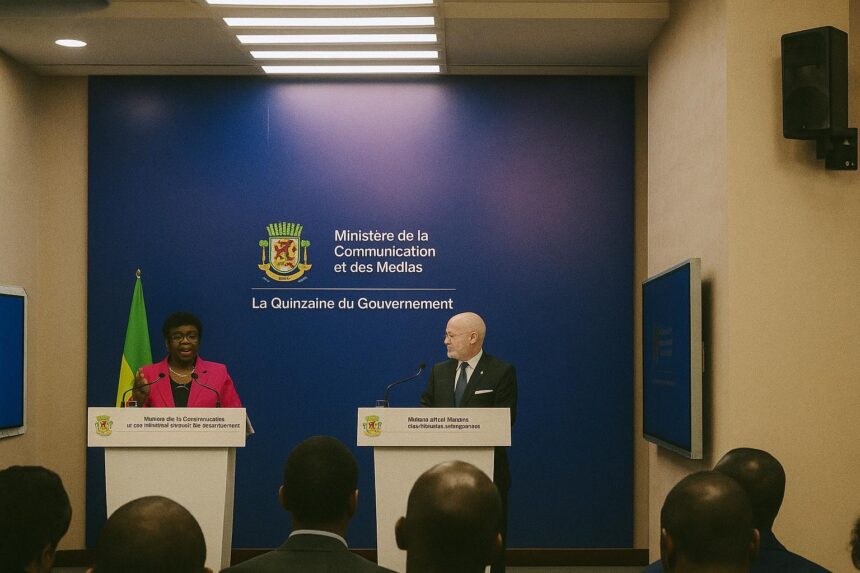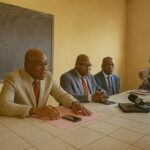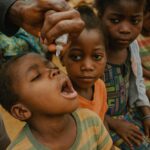A measured stride toward inclusive welfare
The Republic of Congo has signalled a qualitative leap in its social protection architecture. During the latest governmental briefing in Brazzaville, Minister of Social Affairs, Humanitarian Action and Solidarity Marie Cécile Mboukou Kimbatsa confirmed that professional social workers will soon be embedded in public hospitals and, for the first time, in the nation’s school system. The measure, carefully framed as an extension rather than a departure from past practice, aims to synchronise medical, psychosocial and educational responses for citizens whose vulnerability often escapes administrative detection (Agence Congolaise d’Information, 17 July 2023).
- A measured stride toward inclusive welfare
- Building on existing hospital footholds
- Synergising health and education agendas
- Addressing urban precarity and the phenomenon of street children
- From Lisungui to a national safety-net framework
- Local anchorage and evidence-based targeting
- Humanitarian responsibilities amid regional displacement
- Financing and strategic partnerships
- Toward a sustainable architecture of solidarity
Building on existing hospital footholds
The initiative does not emerge ex nihilo. Social-service focal points already operate in the University Hospital of Brazzaville, the General Hospital of Djiri and the Makélékélé District Hospital. Their discreet successes in tracking destitute patients, arranging fee waivers and accelerating surgical referrals have convinced policymakers that scale-up is fiscally defensible. Ministry officials point to a decline in treatment abandonment at these pilot sites, echoing trends observed by the World Health Organisation in comparable middle-income contexts.
Synergising health and education agendas
Transposing the model to schools reflects a broader understanding that deprivation is multidimensional. Teachers frequently become first witnesses to malnutrition, interrupted learning and gender-based violence. A resident social worker can document such indicators in real time and liaise with both the Ministry of Social Affairs and the Ministry of Primary and Secondary Education. By merging health and pedagogical datasets, authorities hope to pre-empt the trajectory that propels minors from classroom absenteeism to street life.
Addressing urban precarity and the phenomenon of street children
Brazzaville has long grappled with an adolescent population that survives through informal labour in markets and bus stations. The new policy dovetails with the existing Centre for Insertion and Reinsertion, where youths are hosted, counselled and eventually offered vocational training once they reach majority. Carpentry, mechanics and agro-processing courses rank among the preferred tracks, according to the centre’s latest activity report. Officials emphasise that the objective is not mere sheltering but economic agency, a point that resonates with the African Union’s Agenda 2063 emphasis on human capital.
From Lisungui to a national safety-net framework
Congo’s earlier Lisungui programme, launched with World Bank technical support, concentrated on Brazzaville, Pointe-Noire and Dolisie. The rebranded Filets Sociaux National project widens that aperture to all twelve departments. While the inherited social registry ensured continuity for 40,000 households, it also revealed data gaps, particularly in sparsely populated northern districts. The Ministry now collaborates with the National Institute of Statistics to update household poverty scores, an exercise consistent with global best practice outlined by the International Labour Organization.
Local anchorage and evidence-based targeting
Selection of beneficiaries is executed through departmental directorates and sub-prefectural social circles, insulating the process from ad hoc discretion. Field agents employ proxy means testing, community validation and periodic audits. These measures, while technocratic, answer donor calls for transparency and satisfy domestic expectations of equitable treatment. In the words of a senior official, the aim is to ensure that ‘scientific rigor sustains social justice’.
Humanitarian responsibilities amid regional displacement
The republic’s social workload is complicated by the presence of roughly 66,000 refugees fleeing insecurity in the Central African Republic, the Democratic Republic of Congo, Chad and Sudan, half of whom originate from the CAR. UNHCR data indicate that 80 percent are women and children requiring immediate schooling and health services. By positioning social workers inside public institutions, Brazzaville intends to harmonise its national protection obligations with international humanitarian law, thereby reducing operational redundancies between state and agency interventions.
Financing and strategic partnerships
Fiscal space remains a consideration in a post-Covid environment characterised by moderated oil revenues. The Ministry projects that initial deployment will be accommodated within the 2024 budget law, supplemented by a forthcoming social protection credit from the African Development Bank. UNICEF has hinted at earmarking technical assistance for the school component, while bilateral partners such as France have expressed interest in co-funding training modules for social workers. Such burden sharing is emblematic of Congo’s calibrated diplomacy that seeks synergies rather than dependency.
Toward a sustainable architecture of solidarity
Experts at the Economic Commission for Africa argue that robust social service cadres can function as early-warning systems for societal stress. Congo’s leadership appears to internalise that logic. By institutionalising social work in hospitals and schools, Brazzaville is not merely multiplying administrative posts; it is weaving a lattice through which vulnerable citizens can ascend toward self-reliance. The coming months will test the scheme’s operational cadence, yet the policy direction enjoys rare cross-party consensus and, crucially, the endorsement of local civil-society platforms. In the calculus of governance, few dividends are as strategically valuable as social cohesion, and Congo’s latest safeguard offensive may indeed strengthen that intangible asset.





















